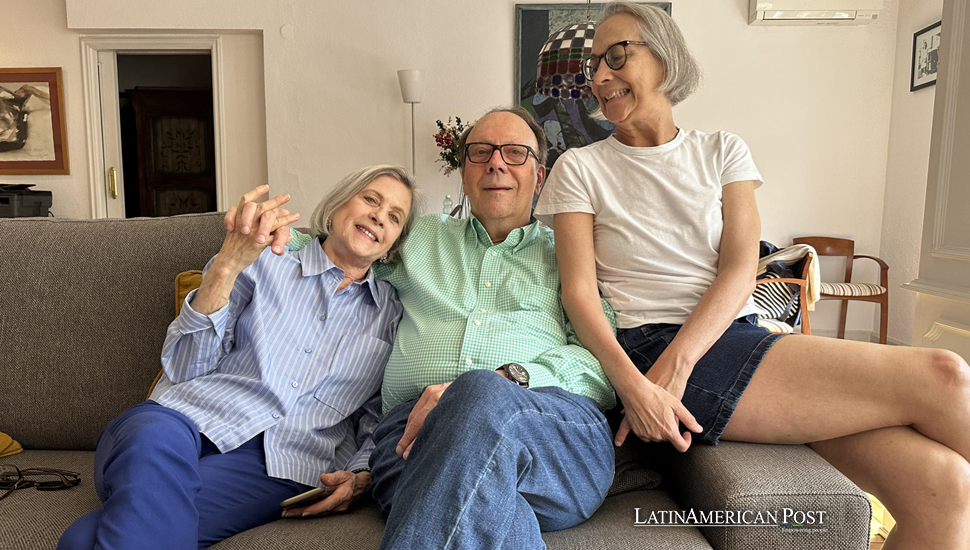Cuban Icon Carlos Alberto Montaner’s Farewell Journey

Cuban writer and journalist Carlos Alberto Montaner, a beacon of anti-totalitarian thought and freedom, spent his final days confronting a relentless neurodegenerative disease with dignity. His daughter, Gina, recounts this poignant journey in a deeply personal and transformative narrative.
“Help Me Die”: A Courageous Request
In early 2022, at a café in Miami, Carlos Alberto Montaner sat across from his daughter Gina and calmly asked for her help to die. His request was not impulsive but the result of long contemplation. Diagnosed with a debilitating neurodegenerative disease, he foresaw the encroaching loss of his faculties and sought to exit life on his terms. This meant leaving Miami and returning to Spain, which he considered his second home. He wanted to start the official steps to ask for assisted death in the country’s public healthcare system. His courage in making this choice was truly admirable.
Montaner’s choice began a very personal and emotional path for Gina. “It did not surprise me,” she remembers, “but my heart broke. We were incredibly close, like siblings.” That’s why he asked me. With unwavering composure, he entrusted Gina to be his steadfast support during his final chapter—a testament to their extraordinary bond. This emotional journey of Gina, from shock to acceptance, is a testament to the human side of this story.
Back in Spain, Montaner’s diagnosis was updated to Progressive Supranuclear Palsy (PSP), a rare and aggressive form of Parkinson’s disease. The illness stole his ability to move, talk and think. He did not want this to happen. He repeatedly told Gina, “My words are dying.” His determination stayed strong as he got ready for his last journey.
Life Lived with Purpose
Carlos Alberto Montaner’s life was one of intellect, endurance, and perseverance for the cause of truth. He was born in Cuba and fled Fidel Castro’s jails at 20. He spent his life fighting against authoritarianism by writing and acting. He wrote many political columns, thousands of them, that appeared in Spain and Latin America. His work combined clever analysis with clear, often funny, writing.
Far from the archetype of the cold intellectual, Montaner was known for his humor, warmth, and ability to connect with people from all walks of life. Even in his final days, he maintained his characteristic irony. On the morning of June 29, 2023, as he waited in his Madrid home for the medical team that would assist his death, he watched a news report about Madonna’s hospitalization. He turned to Gina and joked, “If Madonna dies today, everyone will remember when I passed away.” This was a light moment despite the severe situation. Montaner’s extraordinary spirit showed through.
The day stayed peaceful and transparent. Montaner shared feelings of calm with his wife Linda and children Gina and Carlos. He lived with purpose. Now, he elected to die well. He did not wish to be entangled by the illness. This was the death of a life of achievement and love for freedom and truth. His life and death continue to inspire others, reminding them of the importance of living with purpose and dignity.
The Transformative Journey of Letting Go
Gina walked beside her father in his last days. This journey was not just about helping her father achieve a dignified death-it was about honoring the legacy of a man who had lived a remarkable life. This transformative experience changed how she sees life and death. She thinks about how the experience showed her the frailty of growing old and the certainty of dying. “I saw clearly how we all face weakness and decline someday,” she says. “We live so detached from the reality of death, but this experience changed how I view life and its end.”
Gina owes her kind counsel to Spain’s public health system and the Asociación Derecho a Morir Dignamente (Right to Die with Dignity Association). The respect and humanity extended to her father and endured all the bureaucratic hiccups. “Spaniards may complain about their healthcare system,” she notes, “but it functions exceptionally well, especially in such moments.” The role of the healthcare system in Montaner’s journey is a testament to the support and care available in such difficult times.
The journey wasn’t just about helping her father achieve a dignified death—it was about honoring the legacy of a man who had lived a remarkable life. Montaner spent his final days as he had throughout his life꞉, with control, thoughtfulness, and significant influence on others. He stayed calm and comforted his family by offering reassurance as his life neared its end. This calmness gave peace to his family in their sorrow.
A Chronicle of Courage and Love
Gina Montaner writes about her father’s life in her book Deséenme un Buen Viaje (Wish Me a Good Journey). Her account is a touching tribute to him and his last choice. Very personal memories show a man who was intelligent and fun. He had a big personality. The story mixes deep memories and honest truth, giving readers a clear view of the human side of a public figure.
Montaner’s tale focuses not only on dying but also on living with purpose. He stayed true to his beliefs until the end. He faced death with bravery, just as he had lived. His legacy, both in his many works and in his example for his family and the world, is a testament to the importance of living a life of strong beliefs and values. It is important. It also exists in his example for his family and the world.
Gina looks back on her father’s last days. The memory stays with her forever. “It changed me,” she explains. She witnessed what it means to live and die with honor. Her father approached death like he lived. He showed clarity, purpose, and grace.
Also read : Latin Grammys Celebrated 25 Years of Musical Legacy
An Irreversible Goodbye
Carlos Alberto Montaner’s goodbye was not just the end of a life. It was the closure of a chapter in the ongoing battle for freedom and truth. His path shows the power of choice, the importance of dignity, and how a life lived with strong beliefs stays in people’s memories. Gina’s personal story reveals both the sadness of losing someone and the grace of a farewell that was deliberate in every way. It reminds us that even in the end, we have the power to show who we are and what we believe in.




